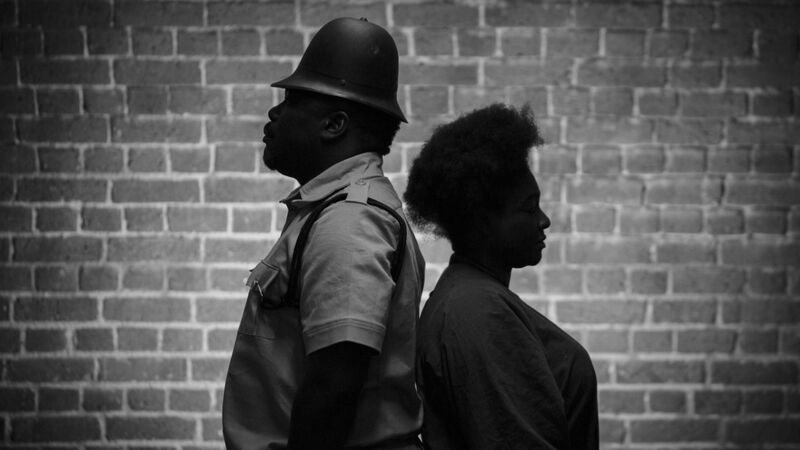Review: ESTHER'S REVENGE at The Bread & Roses Theatre
In 1953 Lagos, Nigeria, a Black woman named Esther Johnson was sentenced to death by hanging for the murder of her abusive white lover. Tried by an all-white jury in the midst of colonial upheaval, racial injustice, and deep systemic prejudice, Esther stood no chance. But does she stand a chance today?
 Artwork for Esther's Revenge.
Artwork for Esther's Revenge.
Esther’s Revenge, a conceptual play from Pawstudios Africa, revisits this real-life case and invites the audience to become Esther’s jury in a bold, thought-provoking, and deeply affecting piece of theatre. First staged in 2018 at Lagos Fringe Festival - on the very grounds of the former Broad Street Prison where Esther was tried - the play has since toured the world, from South Africa, New York, to the UK. Its message remains as raw and resonant today as ever, confronting audiences with urgent themes of gender-based violence, racism, and misogyny.
The 50-minute performance is more than a historical reenactment; it is a reckoning. Audiences are not just passive observers but are actually called to sit in judgment. At every performance, six audience members are brought on stage to serve as Esther’s jury, tasked with deciding her fate after hearing her final plea. At times deeply moving and even uncomfortable, the play powerfully forces personal introspection and challenges deeply held beliefs about justice, race, and power.
Bola Stephen-Atitebi delivers a haunting and layered performance as Esther. Her portrayal is both delicate and defiant, giving voice to a woman who, in reality, was rendered voiceless. Her presence on stage is heart-wrenching and often devastating. From her opening line, ‘They give you your freedom before you die,’ the audience is pulled into Esther’s solitary world, echoing the loneliness she endured behind bars, isolated from loved ones and denied basic dignity.
Director and playwright Kenneth Uphopho has crafted a fiercely intimate experience. He urges viewers to search their own conscience, asking not just what Esther deserves, but what we, as a society, have learned since. The play almost acts as a mirror, reflecting back to us our own complacency amongst ongoing contemporary issues where inequality persists, where the voiceless still struggle to be heard.
Whilst the digital age is designed to give everyone a platform and a voice, Esther’s Revenge reminds us how often that voice is still filtered, muted, or ignored, especially for black women. Each performance becomes a symbolic retrial, and the company has noted how far the audience’s verdict varies across cultures and contexts. These inconsistencies expose the enduring gaps in global understanding of justice and empathy.
Ultimately, Esther’s Revenge is not just a play, but also a cause, a mission, and an act of reckoning. In a world increasingly fractured by isolationist ideologies, it is a bold reminder of the subtle and basic power of gathering - of listening, debating, deciding together. It asks us to speak up, to share space, and to acknowledge that silence can be a form of complicity.
Wherever and whenever it’s performed, Esther’s Revenge speaks directly to the present. It demands we do more than bear witness - it asks us to judge, to choose, and, above all, to listen.
Esther's Revenge played the Bread and Roses Theatre on 27 June 2025.
Latest News

 Full cast announced for London premiere of IN PIECES
26 February 2026 at 16:07
Full cast announced for London premiere of IN PIECES
26 February 2026 at 16:07

 DEATH NOTE THE MUSICAL to come to London's Barbican Theatre
26 February 2026 at 11:56
DEATH NOTE THE MUSICAL to come to London's Barbican Theatre
26 February 2026 at 11:56

 Review: BITCH BOXER at Arcola Theatre
26 February 2026 at 07:09
Review: BITCH BOXER at Arcola Theatre
26 February 2026 at 07:09

 Shakespeare Plays to Watch in London in 2026
25 February 2026 at 23:13
Shakespeare Plays to Watch in London in 2026
25 February 2026 at 23:13
